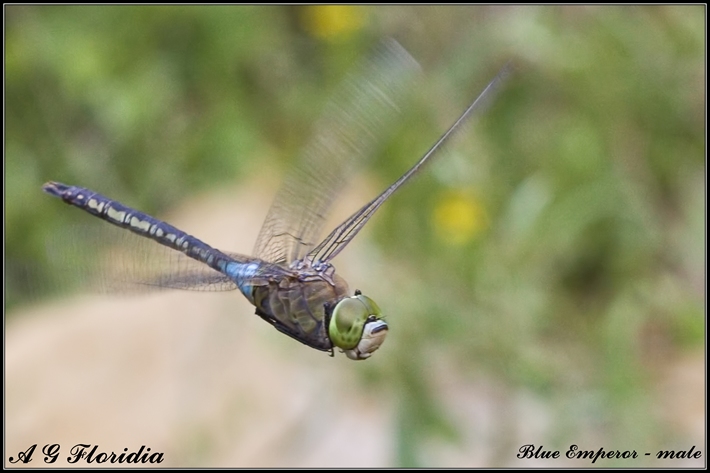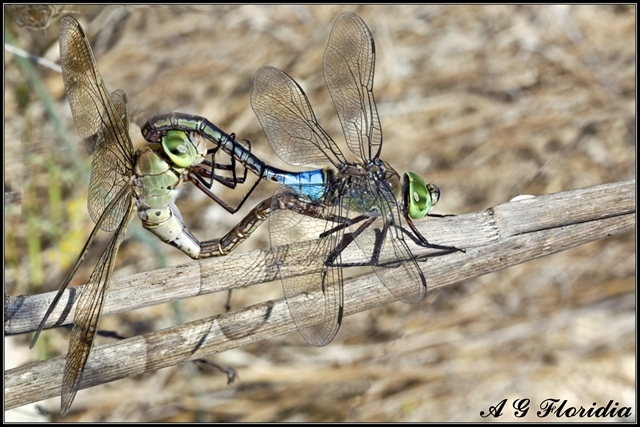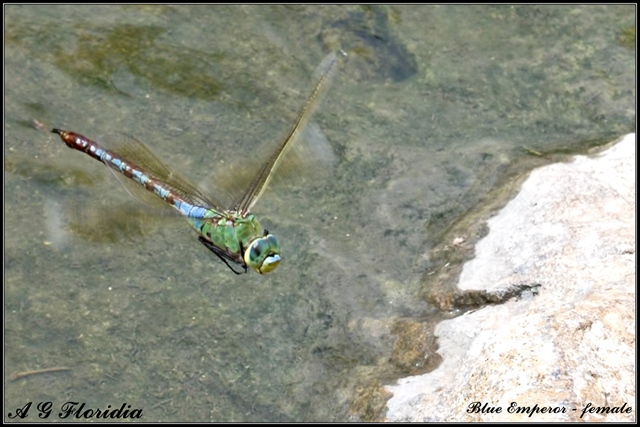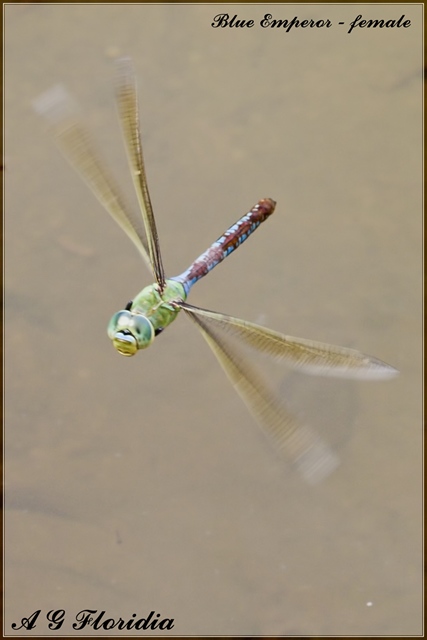|
|
|
|
|
Galleria Tassonomica
di
Natura Mediterraneo
|
 Nota! La determinazione degli insetti necessita quasi sempre di un'indicazione geografica e temporale precisa. Nota! La determinazione degli insetti necessita quasi sempre di un'indicazione geografica e temporale precisa.
Invitiamo quindi gli utenti ad inserire questi dati ogni volta che viene richiesta una determinazione o viene postata una foto di un insetto. I dati forniti dagli utenti ci consentiranno anche di attribuire un valore scientifico alle segnalazioni, contribuendo a migliorare e integrare le attuali conoscenze sulla distribuzione delle specie postate.
|
|
| Autore |
 Discussione Discussione  |
|
|
xilpa
Utente Senior
   

Città: Malta

1461 Messaggi
Flora e Fauna |
|
|
dragonflypix
Utente V.I.P.
  
Città: Siena

188 Messaggi
Flora e Fauna |
 Inserito il - 27 settembre 2010 : 14:33:57 Inserito il - 27 settembre 2010 : 14:33:57


|
Ciao Albert,
Sì, hai ragione, e lo sarà con un po' di pazienza; direi che il tuo maschio è a meta strada.
Anche le veni nelle ali cambieranno colore (giallo --> rosso).
Nei maschi proprio giovani, non c'è traccia del rosso.
Un saluto,
Alfonso
Yes, you're right, and he will be red with a bit of patience; I'd say your male is halfway there.
The wing veins too will change colour (yellow --> red).
In really young males there isn't a trace of red.
My website: Link |
 |
|
|
xilpa
Utente Senior
   

Città: Malta

1461 Messaggi
Flora e Fauna |
 Inserito il - 27 settembre 2010 : 15:28:20 Inserito il - 27 settembre 2010 : 15:28:20


|
Hi
It was very kind of you to answer in such detail. I was doubtful as it was the first time I had seen a male in this state, but it makes sense that during the transition from yellow to red both colours are visible.
Once again many thanks for your help.
Albert
Photos:
Link |
 |
|
|
xilpa
Utente Senior
   

Città: Malta

1461 Messaggi
Flora e Fauna |
 Inserito il - 27 settembre 2010 : 15:31:34 Inserito il - 27 settembre 2010 : 15:31:34


|
Hi Alfonso
I forgot to congratulate you on your website, I refer to it vey often as I find that it is the most comprehensive I have come across.
Best regards.
Albert
Photos:
Link |
 |
|
|
dragonflypix
Utente V.I.P.
  
Città: Siena

188 Messaggi
Flora e Fauna |
 Inserito il - 28 settembre 2010 : 14:30:29 Inserito il - 28 settembre 2010 : 14:30:29


|
Thanks very much, Albert, for the compliment.
Incidentally, I've read in the latest issue of Libellula (#29, 1/2, pp. 55-60) that they've recently discovered Orthetrum nitidinerve on Malta. The authors list four sites, among which the nature reserve at Ghadira and the L-Ghain tal-Mellieha water reservoir. It would be interesting to know if the species is this there (it should still be on the wing at the end of September, I'd say).
Regards,
Alfonso
---
Grazie mille, Albert, per il complimento.
Tra parentesi, ho letto nell'ultimo numero di Libellula (no. 29, 1/2, p.55-60) che hanno recentemente scoperto l'Orthetrum nitidinerve a Malta. Gli autori elencano quattro siti, tra cui la riserva naturale a Ghadira e il bacino a L-Ghain tal-Mellieha. Sarebbe interessante sapere se la specie c'e' ancora (dovrebbe ancora volare a fine settembre, direi).
Saluti,
Alfonso
My website: Link |
 |
|
|
xilpa
Utente Senior
   

Città: Malta

1461 Messaggi
Flora e Fauna |
 Inserito il - 28 settembre 2010 : 19:28:35 Inserito il - 28 settembre 2010 : 19:28:35


|
Dear Alfonso,
Many thanks for your message. Last saturday I went for a nature walk and the guide told me that there are 3 new dragonflies to Malta, but as he is an ornithologist he did not know their names or where they could be found. One of them is Trithemis annulata, as I have photographed both male and female and have also seen them mating, but only in Gozo and not in Malta.
One of the other two must be Orthetrum nitidinerve, and I shall try to visit the two sites you gave me this weekend (The Ghadira bird reserve only opens on weekends, and I shall have to find out where the Ghain tal-Mellieha is, but they should be close to each other). They should still be around as I came across many Anax imperator which were mating.
It will not be easy for me to distinguish between the two if they are on the wing,as they are both blue.
I shall let you know the result of my expedition.
Regards
Albert
Immagine:

150,85 KB
Photos:
Link |
 |
|
|
dragonflypix
Utente V.I.P.
  
Città: Siena

188 Messaggi
Flora e Fauna |
 Inserito il - 29 settembre 2010 : 10:21:49 Inserito il - 29 settembre 2010 : 10:21:49


|
Happy hunting, Albert.
By the way your Emperor looks less like a Blue and more like a Lesser. If he were a male Anax imperator, he'd have to be an immature individual (why else is the abdomen not blue?). But immature males don't have a blue saddle. Also, the thorax looks a bit brown to me (should be more apple green for typical imperator). So my money would be on Anax parthenope.
My website: Link |
 |
|
|
xilpa
Utente Senior
   

Città: Malta

1461 Messaggi
Flora e Fauna |
 Inserito il - 29 settembre 2010 : 13:25:12 Inserito il - 29 settembre 2010 : 13:25:12


|
Hi Alfonso
Many thanks for your message. You are quite right, this is a Lesser, have a look here Link I shall have to adjust my records. I shall have to adjust my records.
So what about these ?
Immagine:

151,8 KB
Immagine:

135,55 KB
Photos:
Link |
 |
|
|
dragonflypix
Utente V.I.P.
  
Città: Siena

188 Messaggi
Flora e Fauna |
 Inserito il - 29 settembre 2010 : 17:12:45 Inserito il - 29 settembre 2010 : 17:12:45


|
Hi Albert,
The copula is pathenope (note the green eyes, brown thorax); the second (in flight) is imperator. I presume you have other photos of that same animal that confirm she's a female; if not, he could certainly be a male.
All the best,
Alfonso
My website: Link |
 |
|
|
xilpa
Utente Senior
   

Città: Malta

1461 Messaggi
Flora e Fauna |
 Inserito il - 29 settembre 2010 : 17:58:57 Inserito il - 29 settembre 2010 : 17:58:57


|
Thanks Alfonso
The only other image of this specimen that I managed is the one below.
Does it help in determining whether it is male of female ?
Once again many thaks for your help and patience.
Regards.
Albert
Immagine:

65,27 KB
Photos:
Link |
 |
|
|
dragonflypix
Utente V.I.P.
  
Città: Siena

188 Messaggi
Flora e Fauna |
 Inserito il - 29 settembre 2010 : 21:22:43 Inserito il - 29 settembre 2010 : 21:22:43


|
Hi Albert,
I'm afraid I don't know, so let's throw it back into the group.
Scusate, amici, vorrei chiervi il vostro parere. Le due foto di Anax imperator in volo sono di un maschio o una femmina? Che ne pensate? Si tratta dello stesso animale in entrambe le foto.
Un saluto,
Alfonso
My website: Link |
 |
|
| |
 Discussione Discussione  |
|
|
|
 Natura Mediterraneo Natura Mediterraneo |
© 2003-2024 Natura Mediterraneo |
 |
|
Leps.it | Herp.it | Lynkos.net
|

 Forum
|
Registrati
|
Msg attivi
|
Msg Recenti
|
Msg Pvt
|
Utenti
|
Galleria |
Map |
Forum
|
Registrati
|
Msg attivi
|
Msg Recenti
|
Msg Pvt
|
Utenti
|
Galleria |
Map |